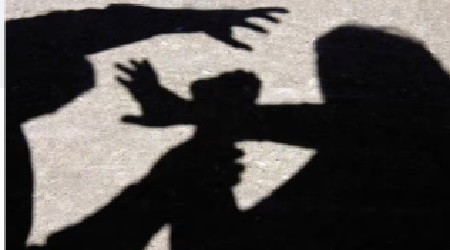
Violence against women must stop
On April 20, 2023, 26-year-old Victoria Dapaah, popularly known as Maa Adwoa, was shot and killed by her police inspector boyfriend at Adum in Kumasi on suspicion of cheating.
In May, a 35-year-old man identified as Akwasi allegedly killed his fiancee, 25-year-old Martha, after she paid him a visit at Atwima Agogo Copas in the Atwima Nwabiagya South Municipal of the Ashanti Region.
In the same month, 25-year-old Victoria Tetteh was allegedly killed by her boyfriend at Dunkwa Mfoum because he saw another man’s picture on her mobile phone, which he had bought for her.
Similarly, a jilted lover allegedly killed his girlfriend at Trom, a suburb of Koforidua in the Eastern Region, on Saturday, June 17, 2023, because the victim was in the process of ending the relationship, which led her to relocate to her current residence.
These morbid reports are just a few of the cases that form part of the growing trend of inhumane and dehumanising treatment meted out to citizens, especially women and girls, over the last couple of months.
According to a report by the Ghana Police Service, there have been 123 reported cases of domestic violence in the first quarter of this year alone, with 67 per cent of the victims being women.
Evidently, many of the attacks are tied to relationship failures and misunderstandings between couples, as the trend sees partners, particularly males, using murder as a means to get back at their significant others, whom they believe cheated on them or failed to reciprocate their feelings.
Law
Under the law, the right to life is fundamental for all human beings and no one has the right to take the life of another.
Chapter 5 of the 1992 Constitution states the rights and freedoms enjoyed by citizens.
Among the rights is Article 12(2) which clearly states that “Every person in Ghana, whatever his race, place of origin, political opinion, colour, religion, creed or gender, shall be entitled to the fundamental human rights and freedoms of the individual contained in this Chapter (5) but subject to respect for the rights and freedoms of others and the public interest.”
The National Commission for Civic Education (NCCE) has expressed worry and vehemently condemned the recent developments.
It cautioned the perpetrators of the abuses to be mindful of the above constitutional provision and the fact that no one should intentionally deprive a person of his life, adding that a person's right to life must be respected and considered a civic obligation.
The commission partly attributed the incidences of abuse against women to the decline and breakdown in family values, and national and cultural values in our social life.
It, therefore, urged parents, guardians, educators and caregivers to support civic education efforts in nurturing young citizens with values such as respect for the rights of others, tolerance of others' points of view, honesty and responsibility.
Tackling issue
In 2007, parliament passed the Domestic Violence Bill and this was an important step in the fight against Gender-Based Violence (GBV).
However, according to the statistics available at the Accra Regional Office of the Domestic Violence and Victims Support Unit (DOVVSU), as of August 2020, 31.9 per cent of Ghanaian women had faced at least one form of domestic violence - physical, economic, psychological, social or sexual.
This is resounding proof that legislation alone will not change the harsh reality of the discrimination that women and girls face in Ghana.
Very little progress will be made unless we, as a nation and a society, address the deep roots of cultural, religious and social norms that have marginalised and historically bestowed a low status on the Ghanaian woman and girl child.
We need to increase the independence and self-realisation of women's potential by removing structural barriers to their economic empowerment, promoting their education and giving them more employment opportunities.
This will go a long way to empower them while discouraging them from tolerating abusive relationships.
It will also embolden them to report such cases to the authorities.
Furthermore, additional steps are needed to ensure both awareness and compliance with the law on domestic violence.
The government should also demonstrate the political will of standing up for women by passing the Affirmative Action Bill immediately and putting more women into positions to make decisions concerning their safety.
There must be strict adherence to the Convention on the Elimination of all Forms of Discrimination Against Women (CEDAW), an international legal instrument of which Ghana is a signatory.
Also, the Ministry of Gender and Social Protection has spelt out the rights, social protection, liberties and freedoms of women, men and children under its National Gender and Children Policy.
State actors must endeavour to rely on all these documents to meet the needs of women.
Let us come together as decent human beings and end violence against women now!
E.mail:
